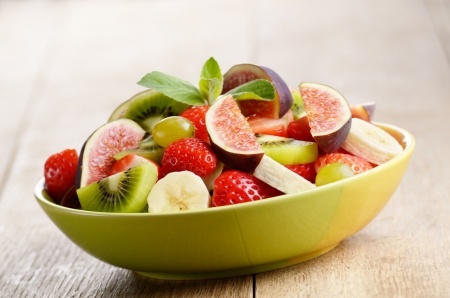Top 10 Organic Fruit and Vegetables
to Buy (or NOT to buy!)

We all know that buying organic food is healthier for both our bodies and the environment. Organic fruit and vegetables contain neither pesticides nor artificial preservatives, and organic farmers do not genetically modify their produce.
Studies conducted by the U.S. Department of Agriculture have proven that most non-organic fruit and vegetables still contain some pesticides even after they have been washed. Although there is debate regarding the amount of harm pesticides can cause, research does point to their potentially negative health effects.
Unfortunately, certain factors keep consumers from purchasing organic food. Only a minority of farmers grows organic food, so consumers in certain areas are forced to purchase non-organic produce. There also tends to be a higher price tag, so it may not fit in everyone’s budget—especially for people with large families. Still, most shoppers agree that potential health benefits outweigh the price difference.
What Organic Produce Should I Buy?
Organicrestaurants.com has taken research from the U.S. Department of Agriculture, consumer reports and the Environmental Working Group to put together a list of 10 organic fruit and veg products that should make everyone’s shopping list.
Top 10 Fruits and Vegetables to Buy Organic
The following 10 fruits and vegetables were found in the studies to contain pesticides more often than other produce types, which means they are the fruits and vegetables everyone should buy organic:
- Nectarines – 97.3 percent contained pesticides
- Celery – 94.5 percent
- Pears – 94.4 percent
- Peaches – 93.7 percent
- Apples – 91 percent
- Cherries – 91 percent
- Strawberries – 90 percent
- Spinach – 83.4 percent
- Potatoes – 79.3 percent
- Bell Peppers – 68 percent
Top 10 Non-Organic Fruits and Vegetables to Buy
By contrast, the following 10 items were found to contain pesticides the least often. So, if you make an all-organic shopping list, these could be the traditional produce you purchase:
- Asparagus
- Papaya
- Onions
- Bananas
- Pineapples
- Mushrooms
- Broccoli
- Avocados
- Mangoes
- Kiwi fruit
You might notice that many of those listed have thick skins such as bananas and avocados. Farmers usually spray the skins with pesticides, but the exterior skin protects the fleshy interior.
Can I Remove Pesticides by Washing and Peeling?
According to the Environmental Working Group, if you rinse the fruit and vegetables before cooking, some pesticides will likely remain. Peeling certainly lessens the chance of ingesting pesticides, but often, nutrients are lost when removing the skin. Here’s our advice: Wash all your fruits and vegetables thoroughly before cooking or eating them, and try to purchase organic produce as often as possible.
Now that you know which foods you should purchase organic—and which ones you can skip—the next step is finding a restaurant for those days when you just don’t feel like cooking. Organicrestaurants.com can help you there. To locate a restaurant with an organic menu near you, please visit our Organic Restaurant Search page.
SOURCES
gourmetfood.about.com
ewg.org
consumerreports.org
helpguide.org
